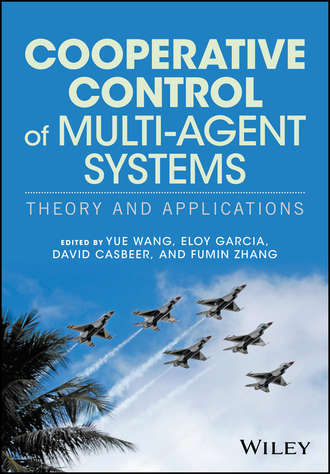
Полная версия
Cooperative Control of Multi-Agent Systems. Theory and Applications
A comprehensive review of the state of the art in the control of multi-agent systems theory and applications The superiority of multi-agent systems over single agents for the control of unmanned air, water and ground vehicles has been clearly demonstrated in a wide range of application areas. Their large-scale spatial distribution, robustness, high scalability and low cost enable multi-agent systems to achieve tasks that could not successfully be performed by even the most sophisticated single agent systems. Cooperative Control of Multi-Agent Systems: Theory and Applications provides a wide-ranging review of the latest developments in the cooperative control of multi-agent systems theory and applications. The applications described are mainly in the areas of unmanned aerial vehicles (UAVs) and unmanned ground vehicles (UGVs). Throughout, the authors link basic theory to multi-agent cooperative control practice – illustrated within the context of highly-realistic scenarios of high-level missions – without losing site of the mathematical background needed to provide performance guarantees under general working conditions. Many of the problems and solutions considered involve combinations of both types of vehicles. Topics explored include target assignment, target tracking, consensus, stochastic game theory-based framework, event-triggered control, topology design and identification, coordination under uncertainty and coverage control. Establishes a bridge between fundamental cooperative control theory and specific problems of interest in a wide range of applications areas Includes example applications from the fields of space exploration, radiation shielding, site clearance, tracking/classification, surveillance, search-and-rescue and more Features detailed presentations of specific algorithms and application frameworks with relevant commercial and military applications Provides a comprehensive look at the latest developments in this rapidly evolving field, while offering informed speculation on future directions for collective control systems The use of multi-agent system technologies in both everyday commercial use and national defense is certain to increase tremendously in the years ahead, making this book a valuable resource for researchers, engineers, and applied mathematicians working in systems and controls, as well as advanced undergraduates and graduate students interested in those areas.

